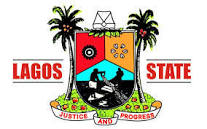The Lagos State Government has intensified its crackdown on unregistered financial operators, taking decisive action against 21 individuals and entities involved in unauthorized money lending practices.
Speaking at a ministerial briefing in Alausa, Ikeja, the Commissioner for Home Affairs, Olanrewaju Layode, disclosed the enforcement move while outlining the state’s efforts to sanitize the financial lending environment. The event marked the second anniversary of Governor Babajide Sanwo-Olu’s second term.
Layode pointed out the increasing challenges faced in monitoring the fast-growing money lending sector, noting that Lagos currently hosts over 600 officially recognized lenders.
“We have 623 licensed money lenders in operation, but the proliferation of illegal outfits continues to pose regulatory challenges,” he said. “We’ve recently sanctioned and shut down 21 of these unlicensed entities who failed to comply with the state’s legal framework.”

He also expressed concern over evasive tactics employed by some operators, such as frequently relocating offices without proper notification, in a bid to avoid scrutiny.
In another development highlighted at the briefing, Layode shared updates on the Lagos State Christian Pilgrims Welfare Board’s recent activities aimed at increasing participation in religious pilgrimages. The board, under the leadership of Secretary Dr. Gbolabo Okudero, has launched a statewide outreach campaign, engaging with churches, media outlets, corporate organizations, and local government councils.
According to Layode, the initiative is part of a broader mission to enhance the spiritual life of Lagos residents while ensuring an organized and rewarding pilgrimage experience in 2025.
“The board is working tirelessly to provide a seamless pilgrimage journey. With proper coordination and stakeholder engagement, we aim for a successful and stress-free exercise this year,” he said.
As Lagos continues to balance religious outreach with economic oversight, the government reaffirmed its commitment to transparency, accountability, and public welfare.




